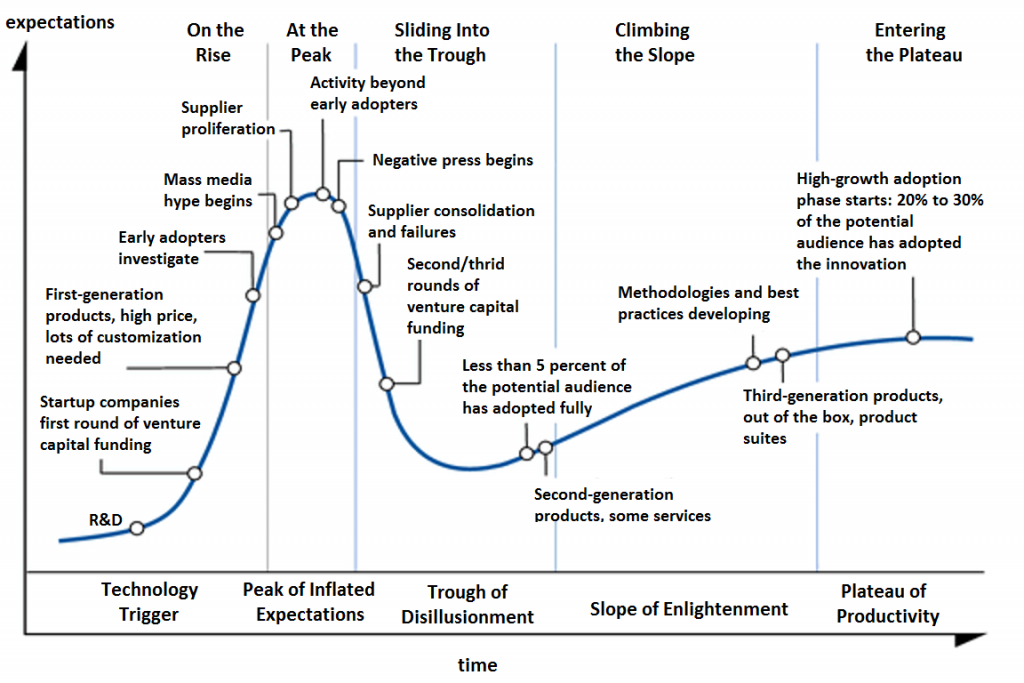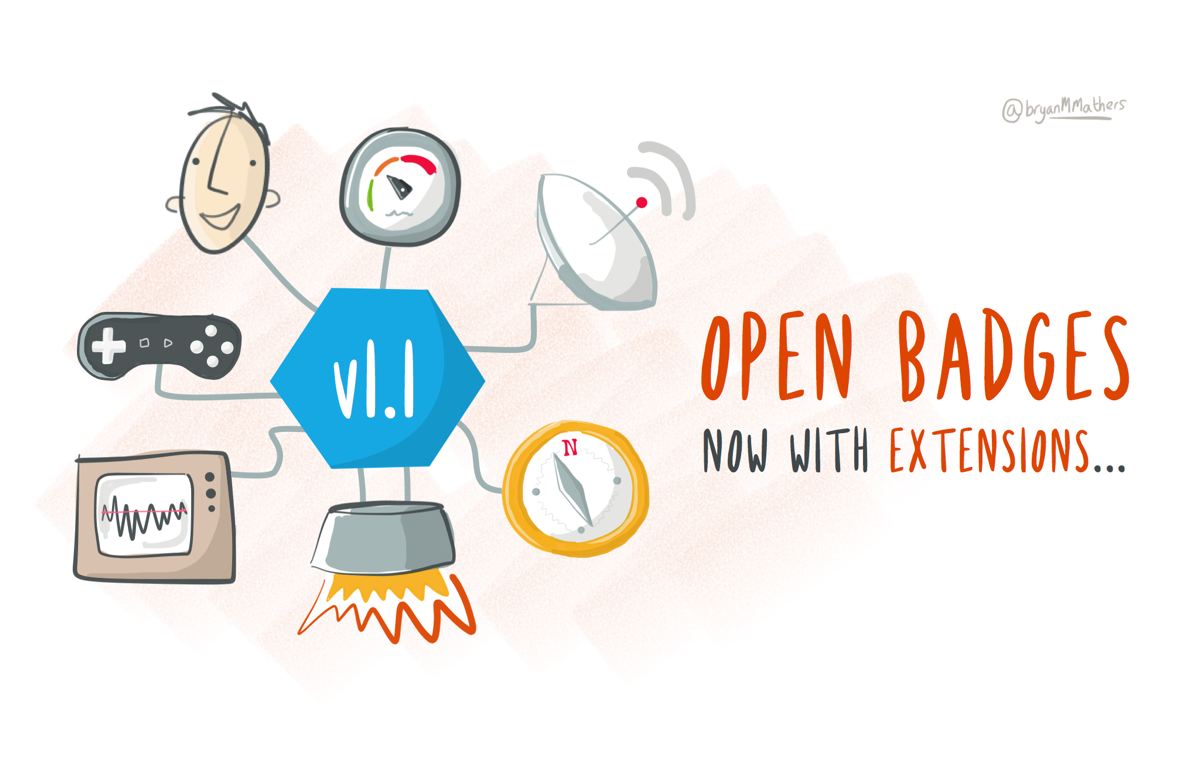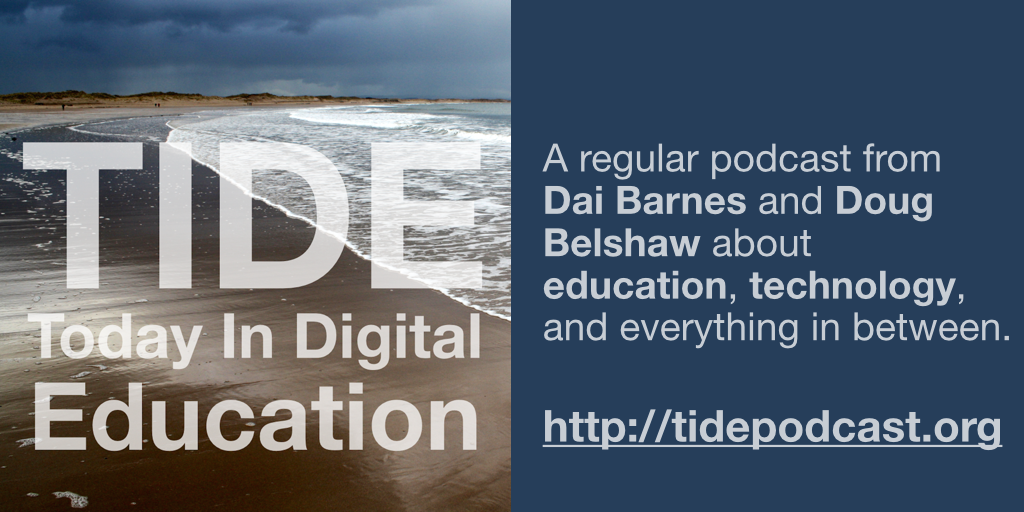Why the future remains bright for Open Badges
Some context
I first stumbled across Open Badges in mid-2011. I immediately thought the idea had revolutionary potential, and began evangelising it to anyone who would listen. Happily, this led to me being asked to fly to San Francisco to judge the DML Competition that initially seed-funded the ecosystem. There, I met Erin Knight in person, and subsequently accepted a position on the badges team at Mozilla.
It’s hard enough building a start-up. So you can imagine what happens behind the scenes when you’re trying to build a brand new global ecosystem. It wasn’t all rainbows and unicorns. From what I understand, things got even tougher after I moved teams at Mozilla to focus on web literacy work in late 2013. My former colleagues formed the Badge Alliance, initially funded by the MacArthur Foundation.
While I was aware of some of what went down at the end of 2014, it’s only been later in small group conversations that I’ve been able to fill in the gaps. All was not what it seemed in badge land. Politics and personalities threatened to shipwreck the nascent badges community. It was a delicate balance: people deserved to know some of what was going on, but negative press could have unduly ‘scared the horses’.
Thankfully, I didn’t have to be the one to write the post that Kerri Lemoie published this week to coincide with this weekend’s Mozilla Festival:
Mozilla is Doing a Hack Job on Open Badges
In the couple of days since Kerri’s post I’ve seen some chatter on social networks. Some people seem to be worried about the long-term viability of Open Badges. Not me. For two reasons.
1. Open Badges is a open source project
The first is that Open Badges is, as the name suggests, an open source project. The great thing about this development model and approach is that, ultimately, it belongs to everyone and no-one. There are occasions when a person, group, or company might assume leadership. However, — but that can (and does) change over time. If there’s ever a time when a significant enough group within an open source project disagree with the direction it’s heading, they can fork the project.
2. The Hype Cycle predicts what’s happening
The second reason comes courtesy of Gartner Hype Cycle. It’s a way of understanding the “maturity, adoption and social application of specific technologies”:
According to Gartner’s 2015 education report (paywalled, but there’s a summary here), Open Badges is right at the top of the Peak of Inflated Expectations. As tends to happen as technologies mature, Open Badges is likely to slide into the Trough of Disillusionment in 2016. This is to be expected. In fact, according to Gartner, it’s necessary in order to reach the Plateau of Productivity.
Now look again at the hype cycle diagram. At the start of the Slope of Enlightenment it reads ‘Second-generation products, some services’. Over the last few months there’s been some discussion about pairing Open Badges with the blockchain technology underpinning Bitcoin. Back in March I wrote a post to that effect, there have been some noises in the Google Group, and (excitingly) and MIT have just launched a similar-sounding project.
Conclusion
So I’d say the future remains bright for Open Badges. It has experienced the growing pains as any truly innovative technology will suffer. 2016 might be rough for the community.
However, we should bear in mind that the hype cycle can describe a full 10 years from conception to mainstream. If that’s true of Open Badges then we can expect full adoption to happen around 2021. So, between then and now, there’s a bunch of us who need to roll up our sleeves, and do the work.
This stuff is too important to be a mere ‘bridging technology’. For some of us it could be some of the most significant work we do in our careers. Open Badges is what we make it. Let’s get on with building the future!
Double rainbow photograph CC BY-SA Eric Rolph. Added badge image presumed fair use from badgerank.org.




